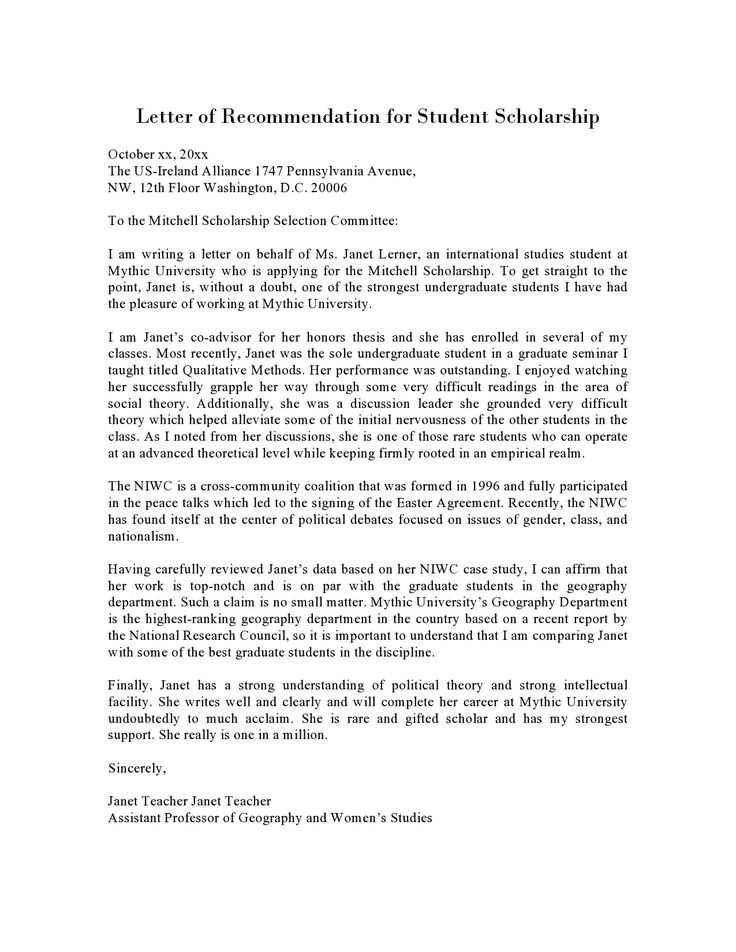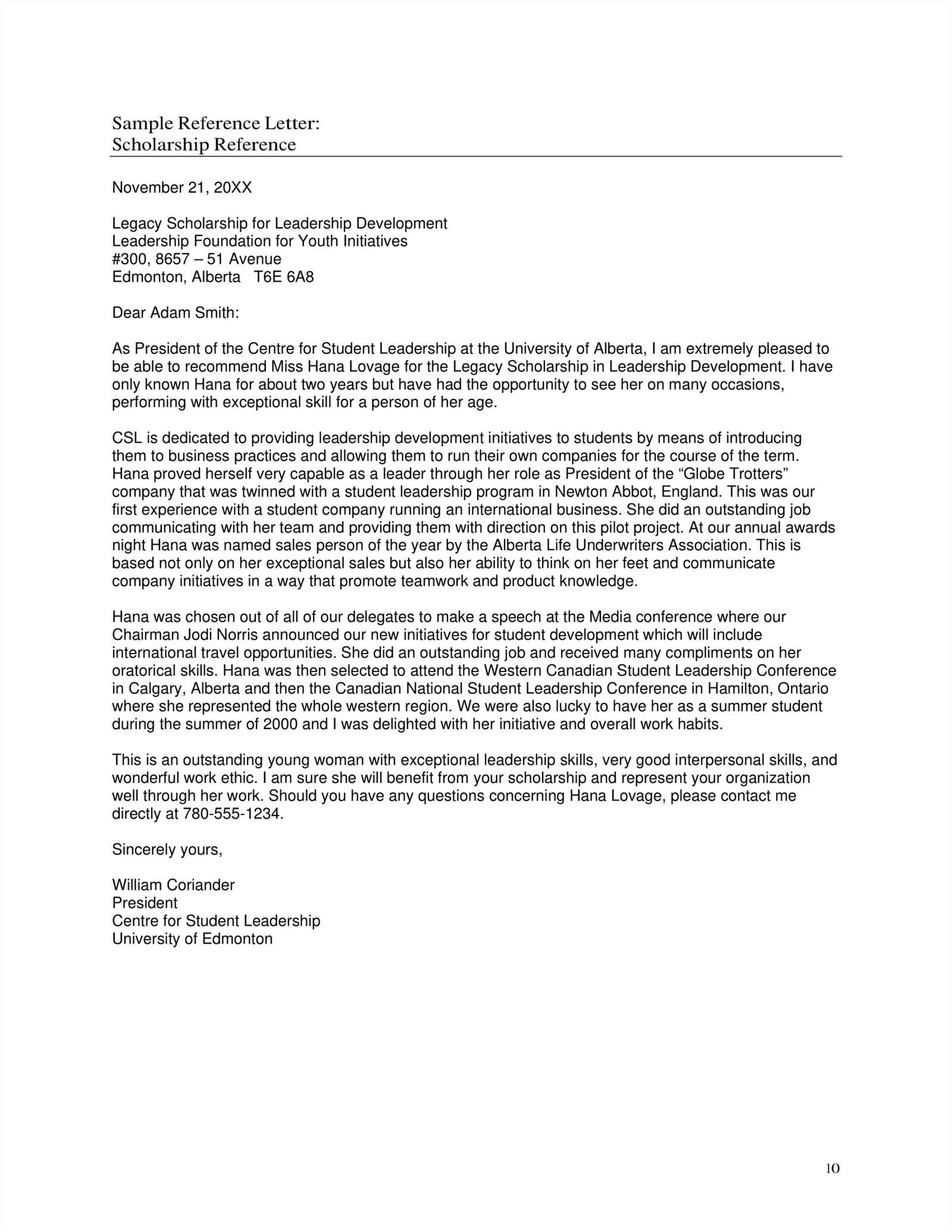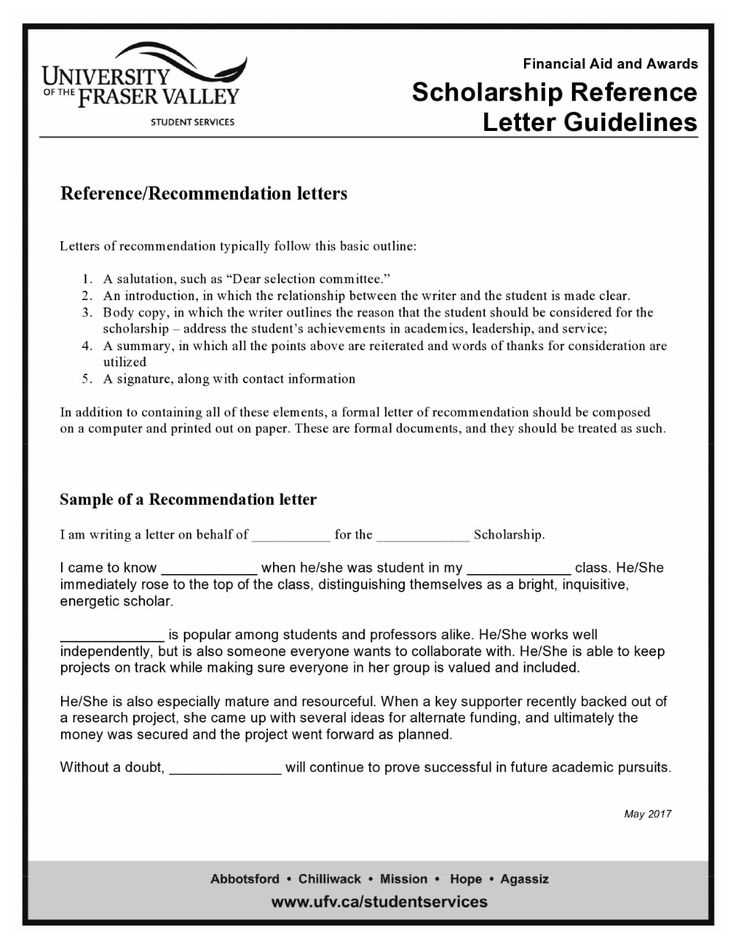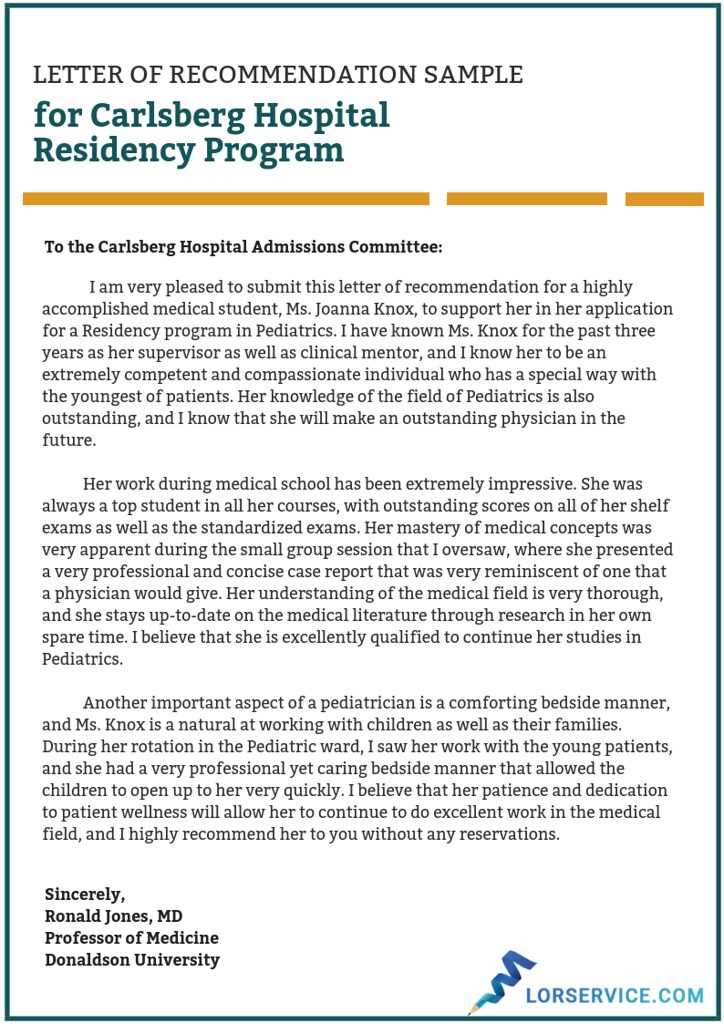Scholarship Recommendation Letter Samples and Templates

When applying for educational opportunities, a well-crafted endorsement from a mentor or authority figure can significantly influence the outcome of your application. Such documents are essential in highlighting your strengths, accomplishments, and potential. A strong endorsement offers a unique perspective on your character, making it an invaluable part of the selection process.
Crafting an effective endorsement requires careful consideration of the recipient’s qualities and the context in which they are being evaluated. The goal is to present a compelling case that underscores their qualifications and potential to thrive in a new academic environment. By following certain guidelines, anyone can draft a document that stands out.
For those seeking support in this process, various resources are available. These resources offer practical suggestions, including common phrases and structures, making it easier to tailor the document to the specific needs of the application. Whether you are writing your own or assisting someone else, understanding the key components will help produce a powerful endorsement.
Understanding the Importance of Scholarship Letters
In the world of academic applications, certain documents play a crucial role in shaping the chances of a candidate’s success. These personal endorsements offer insights into an applicant’s abilities, character, and potential from the perspective of someone who knows them well. The impact of these written statements extends beyond just listing achievements, as they highlight qualities that make an applicant stand out in a competitive field.
Such documents serve multiple purposes, including:
- Providing an objective evaluation of the applicant’s skills and potential.
- Demonstrating the applicant’s fit for a specific academic program or opportunity.
- Supporting the application with a trusted endorsement that adds credibility to the individual’s profile.
These endorsements offer evaluators a more personal and comprehensive view of the applicant, which is essential in making informed decisions. Often, a well-written statement can be the deciding factor between two equally qualified individuals, making it an indispensable tool in the application process.
Key Elements of a Strong Recommendation
To craft a persuasive endorsement, several critical factors must be incorporated to ensure the message resonates with decision-makers. A compelling document not only highlights achievements but also provides a clear picture of the applicant’s character and how their strengths align with the goals of the opportunity they are applying for. The following elements are essential in creating a powerful statement of support.
Personal Insight and Specific Examples
A robust endorsement includes specific instances where the individual demonstrated key skills or qualities. Rather than relying on generalities, showcasing personal experiences allows the reader to understand the applicant’s abilities in context. Real-life examples provide evidence of the person’s capabilities, making the document more credible and impactful.
Clear Understanding of the Applicant’s Goals
It is important that the writer demonstrates an understanding of the applicant’s objectives and how those align with the opportunity at hand. Highlighting how the individual’s aspirations fit with the goals of the institution or program shows a strong match, reinforcing why they are a deserving candidate.
How to Customize Your Letter

Tailoring an endorsement to fit a specific opportunity can significantly enhance its impact. A generic statement may not capture the nuances that set an applicant apart. Customizing the content allows the writer to align the message with the applicant’s aspirations and the particular requirements of the opportunity they are pursuing.
Here are a few strategies to make your endorsement stand out:
- Understand the Opportunity: Familiarize yourself with the goals and values of the institution or program to emphasize the most relevant skills and attributes of the applicant.
- Highlight Key Qualities: Focus on traits that are particularly important to the selection process, such as leadership, work ethic, or academic achievements.
- Use Specific Examples: Incorporate real-world examples that demonstrate the applicant’s abilities in action, ensuring the content is relevant to the application’s context.
- Match the Tone: Adapt the tone to match the formal or informal nature of the application. A well-suited tone ensures the message aligns with the expectations of the selection committee.
By following these steps, you can ensure that the endorsement not only reflects the individual’s strengths but also speaks directly to the criteria that decision-makers value most.
Common Mistakes to Avoid in Letters
When writing a supportive document, avoiding common errors can make a significant difference in its effectiveness. Mistakes can weaken the message and reduce the overall impact of the endorsement. It’s crucial to focus on clarity, accuracy, and relevance to ensure the document serves its purpose in the best possible way.
Lack of Personalization

A generic endorsement fails to capture the true essence of the individual. It’s important to tailor the content to reflect the person’s unique qualities and how they align with the specific opportunity. Failing to do so can make the document seem impersonal and less convincing.
Overuse of Flattering Language
While it’s important to highlight strengths, excessive flattery can undermine the credibility of the statement. Instead, focus on providing concrete examples and specific achievements that support the individual’s qualifications.
| Error Type | Impact | Solution |
|---|---|---|
| Generic Content | Weakens the overall message | Provide tailored examples and personal insights |
| Excessive Praise | Can reduce credibility | Use evidence-based examples to support claims |
| Spelling or Grammar Mistakes | Reduces professionalism | Proofread the document for accuracy |
By avoiding these common errors, you can create a more compelling, credible, and effective document that clearly conveys the individual’s qualifications and potential.
Effective Language for Scholarship Recommendations

The tone and style of the language used in a supportive document play a pivotal role in its effectiveness. Choosing the right words can significantly impact the reader’s perception of the applicant’s abilities and potential. The key is to strike a balance between professionalism, sincerity, and specificity while maintaining clarity and precision throughout the document.
Positive, Action-Oriented Language
Using dynamic, positive language helps to convey confidence in the individual’s abilities. Words such as “achieved,” “excelled,” “demonstrated,” and “led” provide a strong, action-oriented tone that showcases the applicant’s proactive nature. Such language highlights accomplishments and efforts, reinforcing the candidate’s qualifications.
Clear and Concise Descriptions
Clarity is essential when outlining the applicant’s strengths. Instead of vague adjectives, use specific terms that clearly describe the individual’s contributions or skills. For example, rather than saying “a good leader,” one might say “led a team of 10 people to complete a project ahead of schedule.” This approach provides concrete evidence that enhances the credibility of the endorsement.
Free Templates for Scholarship Recommendations
When crafting an endorsement, having a structured outline can simplify the process and ensure all necessary details are included. Using a well-designed format helps the writer focus on the key points without worrying about the overall layout. There are many freely available resources that offer basic frameworks, which can be customized to fit the applicant’s unique qualifications and achievements.
These free resources often provide an easy-to-follow structure, ensuring that the writer includes all relevant information. By utilizing a pre-designed outline, the writer can ensure that each section of the endorsement effectively supports the individual’s case, making the document more impactful and organized.
Tips for Requesting a Recommendation Letter
Asking for a supportive document can be a crucial step in securing opportunities, but the approach taken can make a significant difference in how the request is received. Being respectful and thoughtful in your request not only increases the chances of getting a strong endorsement but also ensures that the person writing it can provide the most relevant information on your behalf.
Be Clear and Specific: When reaching out, clearly explain the purpose of the document and what it will be used for. Highlight the specific aspects of your achievements and character that you’d like the writer to emphasize. This helps them tailor the content to suit the requirements of the opportunity.
Give Ample Time: Asking well in advance gives the writer enough time to craft a meaningful and detailed statement. Rushed requests often result in generic or poorly written documents, so be sure to allow enough time for a thorough process.
Provide Supporting Materials: Offering a resume, personal statement, or specific accomplishments will help the writer understand your strengths and better support your candidacy. These resources provide context and help them include important details that may not be immediately apparent.